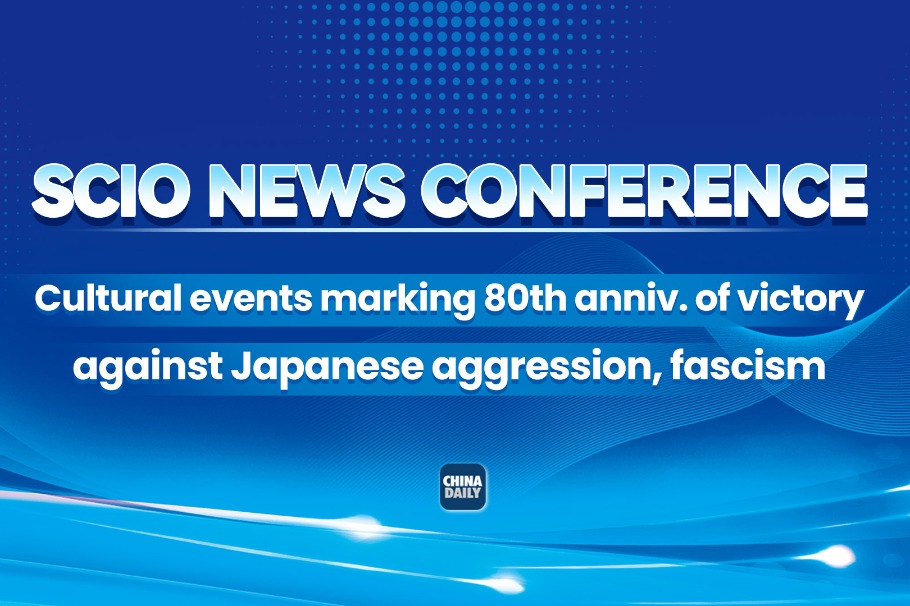This Jasmine is tea

In post-Maoist China, upheaval would disrupt positive 'Jasmine Tea Transformation' and gradual changes
All that is real is rational, explained Hegel in the years following the French Revolution, and confidently added that whatever is rational is real. One can discuss the exact role of reason in human affairs but there is certainly some degree of rationality in historical events. Like the "color revolutions" and their roots in the post-Soviet Union space, "the Jasmine Revolutions" are the products of a very specific socio-political environment. Irresponsible leaders, bad governance, a profound identity crisis, economic and political frustrations as well as the failures of Western policies in the Middle East are some of the elements which explain the radical social movements changing the Arab world. In that sense, a "Jasmine Revolution" cannot erupt in the Chinese context.
In fact, Deng Xiaoping's "reform and opening-up" is a continuous socio-political spring with Chinese characteristics, and, to continue the floral metaphor, could be described as a "Jasmine Tea Transformation". More precisely, this transformation is a managed process of modernization on China's own terms and in relation to the Chinese intellectual tradition, and not about a great leap toward the unknown.
The Chinese-controlled metamorphosis is not only benefiting one-fifth of mankind but is also an engine of economic growth for the global village, a guarantee of geopolitical stability and a source of new ideas.
Even if the forces which are reshaping the Arab world and the dynamics which are transforming China cannot be more different, some segments of the Western society seem to believe that anti-government protests could seriously disrupt stability in the People's Republic.
In the world's most populous nation, one can certainly encounter activists who advocate radical changes but it is mainstream China which will determine the country's future. According to the Washington-based Pew Research Center, 87 percent of the Chinese people were satisfied with their country's overall situation in 2010 - the satisfaction rate was 72 percent in 2005. It is frustration and despair which took some of the 360 million Arabs to the streets of Tunis, Cairo, Sanaa, Tripoli or Amman, but energy, optimism and a sense of cheerfulness characterize the collective Chinese mood.
External prestige impacts internal politics. While China is gaining more and more psychological "face" as a strategic actor, the Arab world has been regrettably losing status and reputation. With the ability to stage world events in global cities - the Beijing Olympics or the Shanghai World Expo - China is a highly respected global player whose position is central to all major transnational issues. For decades, the Arab world has been unable to find a solution to the Palestinian question, and it is Turkey, not Egypt, which is the re-emerging and stabilizing force in a region once dominated by the Ottoman Empire. Two years ago, in The Geopolitics of Emotion, French analyst Dominique Mosi associated Western societies, the Arab world and the Far East with, respectively, the sentiments of fear, humiliation and hope. Beijing's undeniable re-emergence has generated a sense of pride, and if, on the Arab street, a sentiment of humiliation prevails, China is filled with confidence.
"Merit may exist independently of dignity, but no dignity is without a certain merit," observed La Rochefoucault in one of his maxims. Domestically, objective socio-economic achievements speak in favor of the Chinese government. The world's second largest economy is actively building state-of-the-art infrastructure linking entire new cities where euphoric consumption is often the norm. Some of the world's largest companies have already realized that the "Chinese consumer" is the main business story of the coming decade.
If one can point at China's social problems, at the shortcomings of Beijing's bureaucracy, at the risks of inflation or economic disparities, one has also to acknowledge that a system which took 400 million people - more than the entire population of the Arab world - out of poverty, and which put China in a position to become in the coming decades the largest economy in the world, has a solid foundation.
Since the establishment of the People's Republic in 1949, Beijing has seen four generations of leaders, and in 2002 the transition from the third to the fourth generation took place in an orderly process. Next year, the transition of power at the 18th National Congress of the Communist Party of China is very likely to be smooth. Wan Gang, China's minister of science and technology, and Chen Zhu, the minister of health, are not even members of the Communist Party. Western elites and public opinion should pay attention to the fact that the Chinese administration is able to select highly competent officials whose sense of responsibility is often remarkable. If corruption is, of course, also a Chinese issue, China is neither a corrupt nor a failed State.
Since Deng Xiaoping's death in 1997, Beijing's major orientations have been decided by a collective leadership among which a consensus has emerged and which is supported by the vast majority of the Chinese citizens: The country needs reforms to perfect the rule of law, to create the conditions for sustainable economic growth and to provide better social justice. In other words, China needs gradual change but no political disruption or economic discontinuity.
Observers of the gigantic Chinese society should also remember that post-Maoist China can be better understood as a reaction against the anarchic and destructive moments of the "cultural revolution" (1966-1976). China wants stability and predictability and it will strongly oppose actions which could lead to chaotic uncertainty or vast and violent social movements.
Since the beginning of the year tourists can reflect upon a new presence on Tian'anmen Square: A massive statue of Confucius now faces Mao's portrait. Neo-Confucianism in the 21st century is not about revolutionary protests but ritualistic order, moderation and harmony. China has embarked on a process of renaissance through the reinterpretation of its own tradition.
While Washington and Brussels will be occupied with the Middle East problems, China will continue to renew itself and, by doing so, will regain centrality in the world's affairs. Chinese jasmine tea does not only exude a delicate perfume but it is also a healthy drink.
The author is director of the Euro-China Center for International and Business Relations at CEIBS, Shanghai & Beijing, and founder of the Euro-China Forum.
Today's Top News
- China and the EU seek to build foundation on which to further deepen their relations
- Cultural events marking victory against Japanese aggression unveiled
- Wang Yi holds talks with Belgian FM Maxime Prevot
- European Commission president meets with Wang Yi
- Beijing calls for enhancing communication with EU
- Ministry warns of flood risk in north, drought in south






























